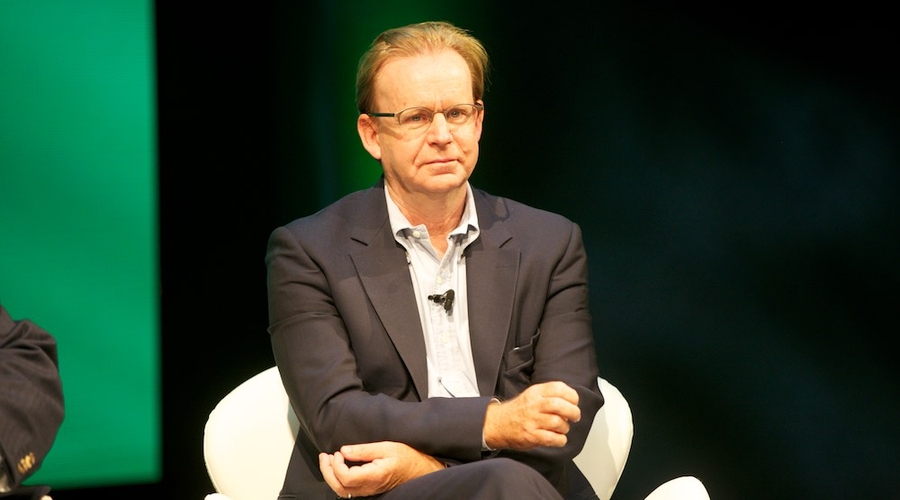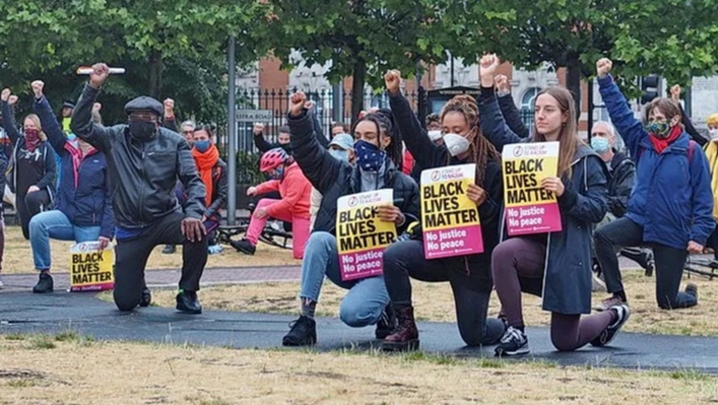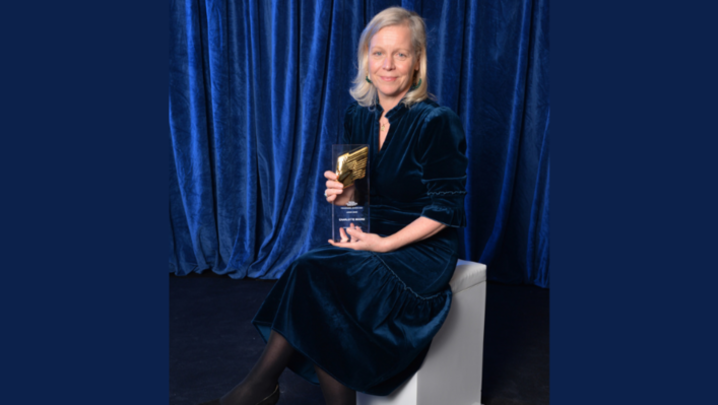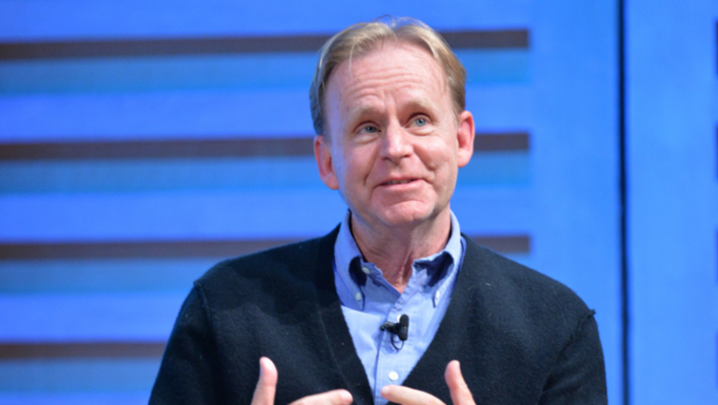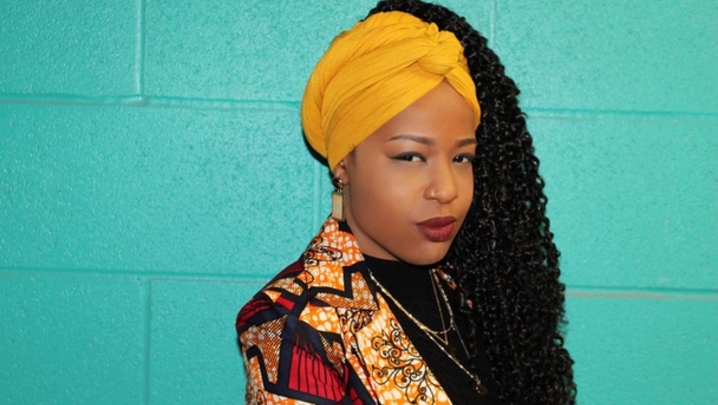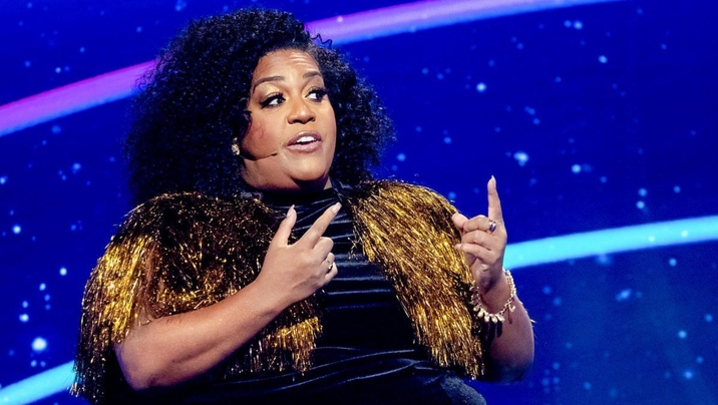Following their recent promotions, Maggie Brown assesses the challenges facing the two most powerful people in British terrestrial TV
Kevin Lygo
The CV: Lygo
In February, Kevin Lygo, 58, became ITV’s Director of Television, following the exit of Peter Fincham after eight years in the role.
2010-16 Lygo served as Director of ITV Studios, acquiring 14 production companies and establishing a robust presence in the US. He implemented CEO Adam Crozier and outgoing Chair Archie Norman’s strategy to rebalance ITV to make it less dependent on ad revenue.
2003-10 As Channel 4 Director of Programmes, he launched More4 and hired popular stars such as Paul O’Grady, but allowed Big Brother to sprawl, then cancelled it in 2009. Joined ITV after the Channel 4 CEO job went to David Abraham in 2010.
2001-03 As Channel 5 Director of Programmes, gave prominence to arts to temper the station’s brash reputation.
1998-2001 Channel 4 Head of Entertainment and Comedy, a key hire by CEO Michael Jackson. Hits included The 11 O’Clock Show (Ali G); Smack the Pony; So Graham Norton; and Dom Joly’s Trigger Happy TV. Masterminded the successful launch of E4.
1981-97 BBC comedy script writer, general trainee, entertainment producer, Head of Independent Commissioning Group; Head of Entertainment
Lygo studied music at Durham University. He is an expert in Islamic art and Nepalese bronzes. Famed for witty one liners and lunching at Pizza Express. He works at a clutter-free desk, clearing his emails daily.
The job: Lygo
Kevin Lygo controls ITV1, ITV2, ITV3, ITV4, ITV Encore and ITV Be, the commissioning teams and scheduling. He reviews how the channels are run and targeted, in conjunction with the group’s advertising team.
The company has reaffirmed ITV2 as a young-adult station following the arrival of Family Guy from BBC Three last month. The content budget is £1bn, with around £700m devoted to ITV.
This is less than BBC One spends, but not accepted as an excuse for ITV1’s drop in audience share to 15% (against BBC One’s 22%). ITV1 remains the UK’s most-watched commercial channel, providing nine out of 10 programmes that attract more than 3 million viewers.
Lygo brings a ruthless touch to reversing the drift. His willingness to make changes fast was evident in the departures of Elaine Bedell and Richard Klein, commissioners of entertainment and factual, respectively.
Building a team to plug gaps in factual entertainment and high-end drama is key. But he must also ensure ITV Studios, headed by decisive former C4 collaborator Julian Bellamy, delivers a solid chunk of ITV’s output – at or above the current 62%. ITV’s acquired producers make big-hitting shows, from Poldark to The Graham Norton Show.
The strategy: Lygo
The aim is to reinvigorate ITV in all genres. The schedules are seen as relics of the 1990s. A key issue is how to handle elderly entertainment shows, headed by Simon Cowell’s The X Factor, now in the last year of its contract. It is likely to survive, refreshed, while replacements are sought.
Ninja Warrior UK and Long Lost Family have performed satisfactorily. The Voice UK, made by ITV Studio’s Talpa, will fill the former Dancing on Ice January slot in 2017 – the decisions to chop Dancing on Ice and GMTV are now viewed as mistakes. New, high-rating factual entertainment is a priority.
ITV drama needs drastic restoration and this will take a minimum of two years. Tasks include finding a replacement for Downton Abbey, more returning series, alongside Midsomer Murders, Scott & Bailey and Endeavour, plus 8:00pm fare.
The failure of Jekyll and Hyde and Beowulf: Return to the Shieldlands, worries about the revival of Cold Feet, and the lack of glossy international co-productions underscore the need for change and ambition.
Charlotte Moore
The CV: Moore
In January, Charlotte Moore, 47, was promoted to Controller of BBC TV Channels BBC One, Two and Four, and iPlayer Content, a newly created position. The post of BBC Two Controller was abolished.
2013-16 Controller of BBC One, taking over from Danny Cohen, following a spell running BBC Daytime. Her innovations included Peter Kay’s Car Share, launched on iPlayer, and evening documentaries. Her appointment signalled a rising appreciation of collaborative team players.
2012 Given responsibility for all BBC Knowledge programmes, including BBC Three’s Our War and mental health season It’s a Mad World.
2009 BBC Commissioning Editor of Documentaries, across all channels, in-house and independents. Credits included The Great British Bake Off, Inside Claridges, The Choir and The Tube.
2006 Joined BBC Documentaries.
2004 Head of Documentaries, rising to Director of Contemporary Factual Content at Ideal World Productions (IWP)
2002 Producer/Director, IWP, on shows such as Location, Location, Location.
1990 Atlantic Productions, after reading history at Bristol University.
Married to freelance TV cameraman Johann Perry. Following coverage in The Daily Mail, she resigned as Company Secretary of Perry Images on 28 January. Owned by her husband, it was set up nine years ago. The BBC said her husband’s work did not represent a conflict of interest, as she does not hire crew.
The job: Moore
Charlotte Moore finds herself in an exceptionally powerful new role as Controller of BBC TV Channels. Yet she is remarkable for rarely missing a preview screening or launch, or the chance to mix afterwards with producers.
She is a highly visible creative leader, a personable executive who likes to smile and does not stand on her ego. Launches of Great Barrier Reef with David Attenborough, War and Peace and Line of Duty all find places in her diary.
Her understanding of the difficulties faced by programme-makers is evident and crucial to her style of sympathetic leadership. She was selected by Director-General Tony Hall in a swift internal contest, ahead of Kim Shillinglaw.
However, the move has created internal controversy and uncertainty, and unsettled genre commissioners and executives working to her. She presides over a TV content budget in excess of £1.4bn.
The move was partly designed to make it easier to switch programmes around between channels, encourage greater co-ordination and planning, and to spread repeats between BBC One and BBC Two. It also saved money on executive salaries.
BBC One has flourished under her. Moore has been able to extend its public service range and demonstrate that audiences will turn up for carefully chosen, hard-hitting documentaries at 9:00pm, and for fresh, emotional domestic drama (Dr Foster) and quirky experiments (Dickensian). These are all important in a period overshadowed by Charter renewal.
The strategy: Moore
Moore is trusted with making sense of a massive overhaul of the BBC’s services, driven by Hall, which partly explains her elevation. Far-reaching changes are in hand for the system of commissioning content, bringing television, radio and online together in interest and age groups, as pioneered by BBC Arts & Music two years ago. The new approach will bracket BBC Three online and Radio 1 together.
The emollient Moore will be expected to spearhead the changes and adapt output to the revolution in viewing habits. A further aim is to balance a concentration of power by devolving decisions to commissioners, to ensure a wider range of tastes are involved in commissioning.
While BBC One’s budget has been enhanced with extra funds for drama, the backdrop is cost cutting, with £700m of savings required overall by 2021-22. Moore, running the most visible channels, will play a key role in defending the corporation’s role in popular entertainment and BBC-led, co-produced dramas.

